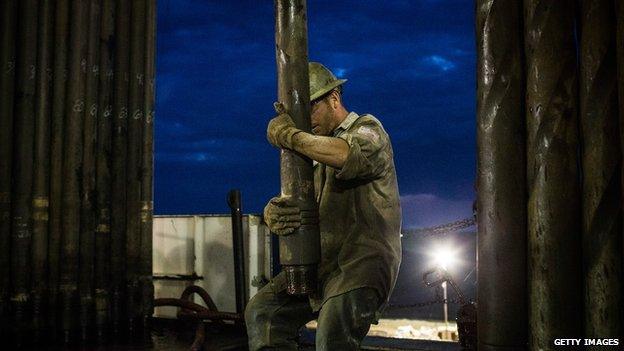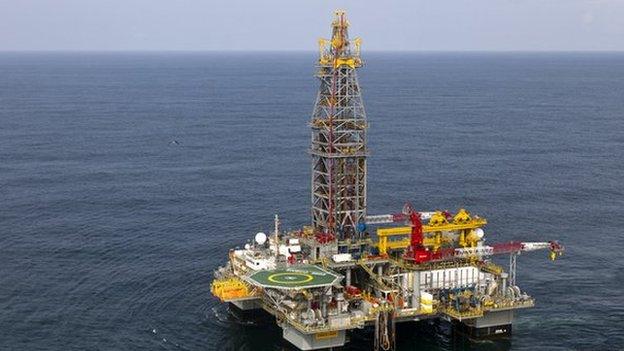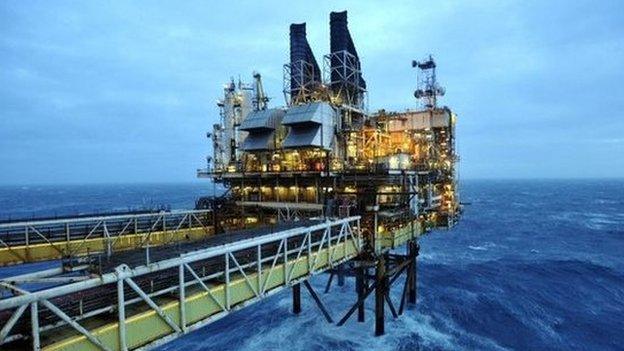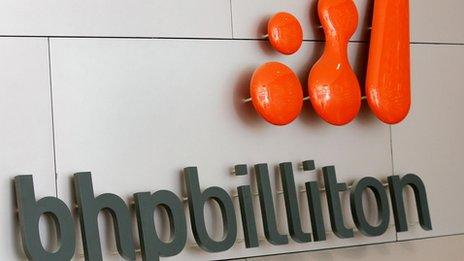BHP Billiton cuts US shale operation as oil price falls
- Published

BHP Billiton, the world's biggest miner, is to cut 40% of its US shale operation
The falling oil price has forced the world's biggest mining company, BHP Billiton, to cut its US shale oil operation by 40%.
It is reducing the number of rigs from 26 to 16 by the end of the June.
However, BHP said, external it expected increased productivity to boost output by some 50% over the period.
BHP Billiton has promised not to reduce dividends to shareholders despite dramatic price falls in all its main commodities - iron ore, copper and oil.
Oil prices have fallen by more than half since last summer, with the price of both Brent and US crude now below $50 a barrel.
Chief executive Andrew Mackenzie said: "In petroleum, we have moved quickly in response to lower prices.
"The revised drilling programme will benefit from significant improvements in drilling and completions efficiency."
In 2011, BHP spent $20bn breaking into the shale oil and gas market buying Petrohawk Energy and Chesapeake Energy in Louisiana and Texas.
Mr Mackenzie said the group's drilling operations would now focus on its Black Hawk field in Texas.
Total cuts
On Wednesday, French oil group Total said it would limit US shale investments in light of the sharp fall in crude oil prices.
Speaking at the World Economic Forum in Davos, Total chief executive Patrick Pouyanne said: "We have fields on the US East Coast and my instructions have been pretty clear - we will limit investments. But I can come back in one year when prices come back."
BHP is also the world's third biggest miner of iron ore, where price falls have been equally dramatic.
Over 2014, iron ore prices fell some 47% and on Wednesday hit their weakest level since 2009. The price has tumbled as demand from Chinese steel producers has slumped while supply continues to rise.
Even so, BHP says iron ore output rose 16% in the October-to-December period, hitting 56.4 million tonnes, and it aims to boost annual production by 11% in 2015.
BHP said it was sticking to its plan to spin off its aluminium, manganese, silver and some nickel and coal assets into a new company, South32.
- Published19 January 2015

- Published15 January 2015

- Published15 January 2015

- Published19 August 2014
